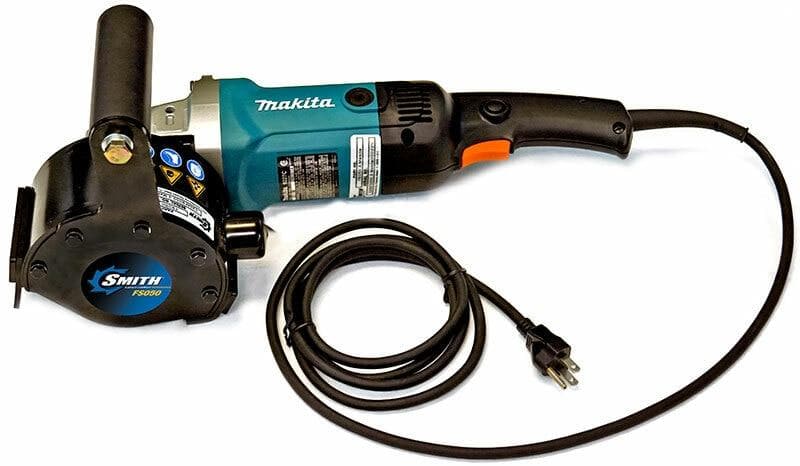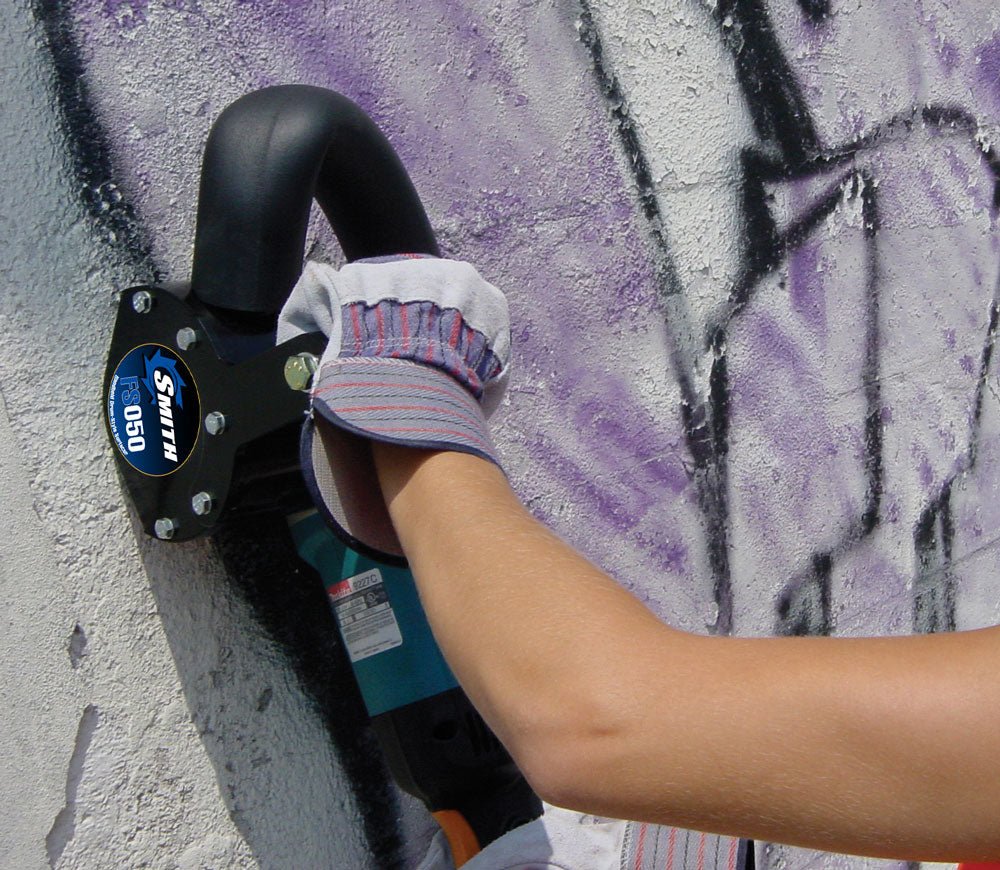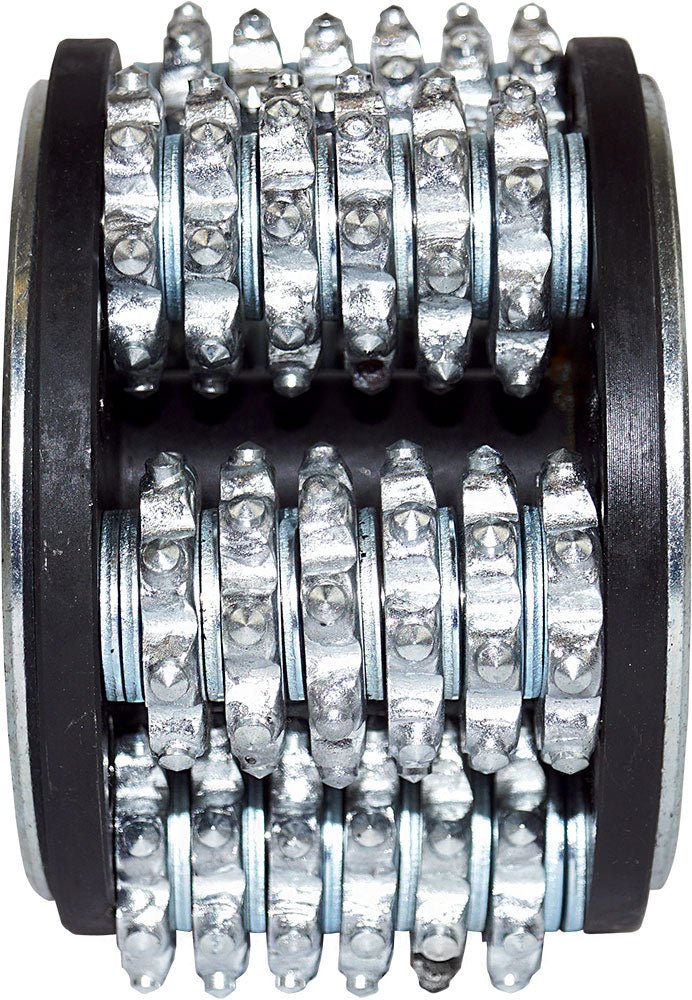SMITH FS050 Electric Handheld Scarifier
SKU# FS050.3.MAKITAThis item comes with a Medium Scarifier Drum. If you need an option best to call prior to purchase.
Couldn't load pickup availability
Safe & Secure Payments.
SMITH FS050 Electric Handheld Scarifier with Medium Drum
The SMITH FS050 is a fast, rugged and lightweight portable hand-held scarifier designed for high-performance edging or removing in hard-to-reach locations. It's versatile, offering a variety of cutters with a 4- or 6-shaft cutter setup, plus an extra set of shaft holes. Reversible left or right handles to power through high spots, low spots, and in very tight areas. Add a vacuum for dust-free applications. Best for touch-ups, edging, removing in hard-to-reach areas, walls, ceilings, and others.
Used by concrete contractors, striping contractors, do-it-yourselfers and more.
Drum Options
Standard Features
- Ergonomic vibration-dampening handle
- Vacuum port
- Side-loading drums
Removal and Speed
- ≤ 2" wide
- 1/16" depth/pass
- ≤ 100 SF/hour
Cutter Choices
- Steel flails
- Carbide flails
- 4N1 strip cutters
- Carbide scrapers
Options
- Rubber shroud extension
Manuals
FS050 Operation and Parts Manual
Surface Profiles (SP1 – SP10)
The surface profile (SP) chart is used as a visual representation of desired surface textures, roughness, and general appearance on concrete or asphalt. Each profile has a corresponding number, ranging from SP1 (nearly flat) to SP10 (extremely rough).
The surface profile is defined as the measurement of the average distance from the peaks of the surface to the valleys, as seen through a cross-section of the prepared surface.
The texture and appearance of the profile obtained through the surface-preparation process will vary, depending upon the concrete/asphalt strength, composition, aggregate and finish. On sound surfaces, the range of variation can be controlled to represent these standards, however, as removal depth increases, the profile of the prepared substrate will be increasingly dominant by the type and size of the coarse aggregate.
Confirmation that the desired profile has been achieved during the surface-preparation process is done by visually inspecting the surface, then comparing it to the profiles depicted by replica profile tiles, replica putty, replica tape, or SP photos (see below). The replica putty test is ASTM D7682, and the replica tape test is ASTM D4417.
The creation of a surface profile can be accomplished with a variety of tools, equipment and materials, and requires a specification to select the desired SP range, dependent upon the type of overlay system and material thickness to be installed







